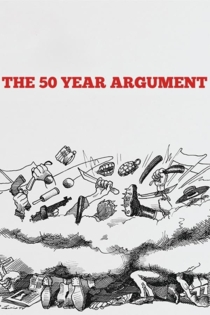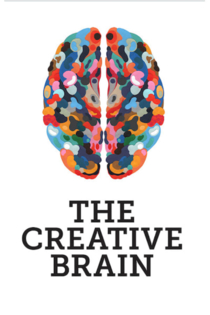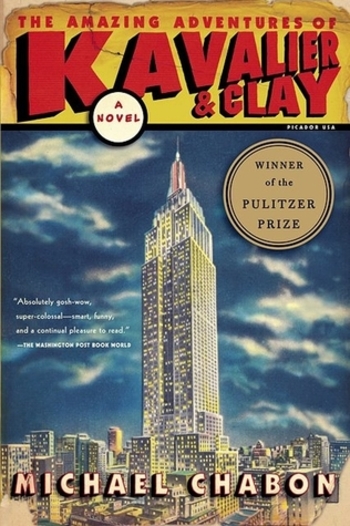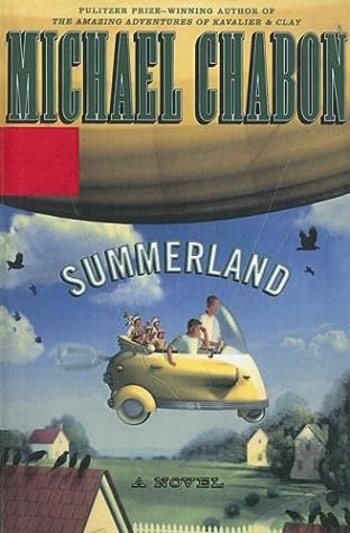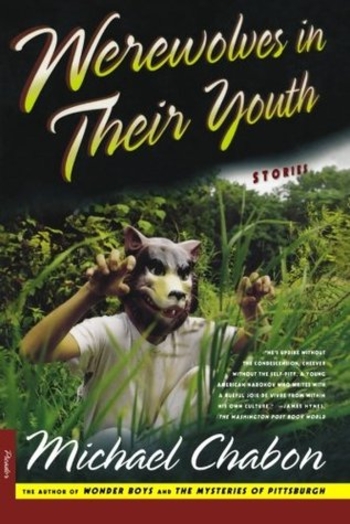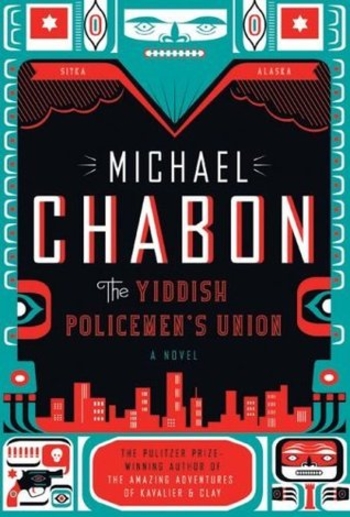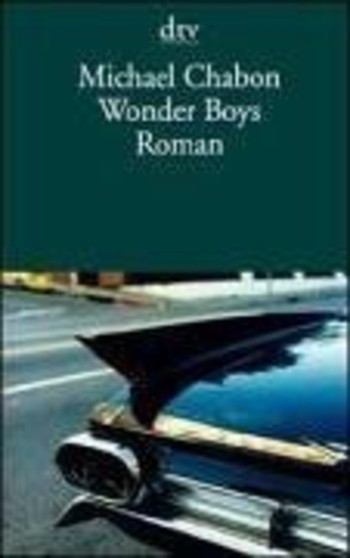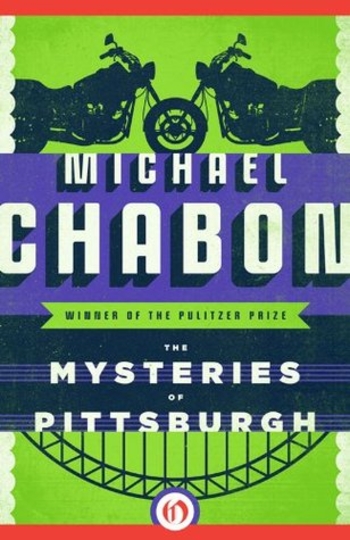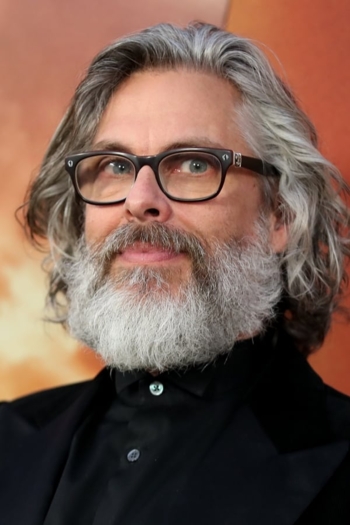
Michael Chabon
1963 (61 год)Chabon's first novel, The Mysteries of Pittsburgh (1988), was published when he was 25. He followed it with Wonder Boys (1995) and two short-story collections. In 2000, he published The Amazing Adventures of Kavalier & Clay, a novel that John Leonard would later call Chabon's magnum opus. It received the Pulitzer Prize for Fiction in 2001.
His novel The Yiddish Policemen's Union, an alternate history mystery novel, was published in 2007 and won the Hugo, Sidewise, Nebula and Ignotus awards; his serialized novel Gentlemen of the Road appeared in book form in the fall of the same year. In 2012, Chabon published Telegraph Avenue, billed as "a twenty-first century Middlemarch," concerning the tangled lives of two families in the San Francisco Bay Area in 2004. He followed Telegraph Avenue in November 2016 with his latest novel, Moonglow, a fictionalized memoir of his maternal grandfather, based on his deathbed confessions under the influence of powerful painkillers in Chabon's mother's California home in 1989.
Chabon's work is characterized by complex language, and the frequent use of metaphor along with recurring themes such as nostalgia, divorce, abandonment, fatherhood, and most notably issues of Jewish identity. He often includes gay, bisexual, and Jewish characters in his work. Since the late 1990s, he has written in increasingly diverse styles for varied outlets; he is a notable defender of the merits of genre fiction and plot-driven fiction, and, along with novels, has published screenplays, children's books, comics, and newspaper serials.
Chabon (pronounced, in his words, "Shea as in Shea Stadium, Bon as in Bon Jovi", i.e., /ˈʃeɪbɒn/) was born in Washington, D.C., to a Jewish family. His parents are Robert Chabon, a physician and lawyer, and Sharon Chabon, a lawyer. Chabon said he knew he wanted to be a writer when, at the age of ten, he wrote his first short story for a class assignment. When the story received an A, he recalls, "I thought to myself, 'That's it. That's what I want to do. I can do this.' And I never had any second thoughts or doubts." Referring to popular culture, he wrote of being raised "on a hearty diet of crap". His parents divorced when he was 11, and he grew up in Pittsburgh, Pennsylvania, and Columbia, Maryland. Columbia, where he lived nine months of the year with his mother, was "a progressive planned living community in which racial, economic, and religious diversity were actively fostered." He has written of his mother's marijuana use, recalling her "sometime around 1977 or so, sitting in the front seat of her friend Kathy's car, passing a little metal pipe back and forth before we went in to see a movie." He grew up hearing Yiddish spoken by his mother's parents and siblings. ...
Source: Article "Michael Chabon" from Wikipedia in English, licensed under CC-BY-SA 3.0.
Will Eisner: Portrait of a Sequential Artist
Andrew D. Cooke
Will Eisner, Art Spiegelman
Arguably the most influential person in American comics, Will Eisner, as artist, entrepreneur, innovator, and visual storyteller, enjoyed a career that encompassed comic books from their early beginnings in the 1930s to their development as graphic novels in the 1990s. During his sixty-year-plus career, Eisner introduced the now-traditional mode of comic book production; championed mature, sophisticated storytelling; was an early advocate for using the medium as a tool for education; pioneered the now-popular graphic novel, and served as inspiration for generations of artists. Without a doubt, Will Eisner was the godfather of the American comic book.
Will Eisner: Portrait of a Sequential Artist
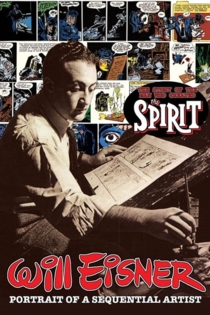
Comic Book Superheroes Unmasked
Steve Kroopnick
Peta Wilson, Keith David
Industry insiders like Stan Lee and Neil Gaiman (The Sandman) reflect on the way their colorful creations reflect society at large. They have spread from the pulpy pages of nickel comics to Saturday morning cartoons, the big screen and beyond. They have evolved from simple, All-American heroes to tortured, complicated characters reflecting the dreams, desires and fears of modern society. From Superman to The Sandman, Comic Book Superheroes Unmasked is a fascinating, feature-length look at the evolution of an art form that has proved remarkably adaptable and enduring. Filled with classic images from DC and Marvel Comics as well as extensive interviews with modern masters of the graphic novel like Neil Gaiman and Frank Miller (The Dark Knight Returns), this documentary, originally aired on the History Channel, goes far beyond the superficial escapist fantasies to probe the forces that shaped the characters who have become legend...
Comic Book Superheroes Unmasked
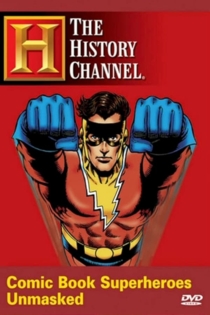
Worlds of Ursula K. Le Guin
Arwen Curry
Ursula K. Le Guin, Jean T. Kroeber
Produced with Le Guin’s participation over the course of a decade, Worlds of Ursula K. Le Guin is a journey through the writer’s career and her world’s, both real and fantastic. Viewers will join the writer on an intimate journey of self-discovery as she comes into her own as a major feminist author, opening new doors for the imagination and inspiring generations of women and other marginalized writers along the way. The film features stunning animation and reflections by literary luminaries including Margaret Atwood, Neil Gaiman, David Mitchell, Michael Chabon, and more.
Worlds of Ursula K. Le Guin
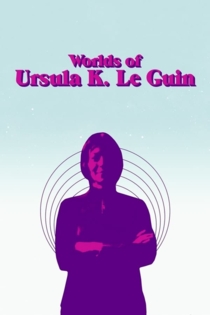
The Pulitzer At 100
Kirk Simon
Ayad Akhtar, Michael Chabon
The Pulitzer at 100, by Oscar and Emmy winning director Kirk Simon, is a ninety-minute independent documentary released in conjunction with the Pulitzer Centennial in April 2016. This film is told through the riveting stories of the artists that have won the prestigious prize. With Pulitzer work read by Helen Mirren, Natalie Portman, Liev Schreiber, John Lithgow and Yara Shahidi; journalists include Carl Bernstein, Nick Kristof, Thomas Friedman, and David Remnick; authors include Toni Morrison, Michael Chabon, Junot Díaz, Tony Kushner, and Ayad Akhtar; and musicians Wynton Marsalis, David Crosby, and John Adams also share their stories.
The Pulitzer At 100

The 50 Year Argument
Martin Scorsese, David Tedeschi
Michael Chabon, Norman Mailer
Follows the waves of literary, political, and cultural history as charted by the The New York Review of Books, America’s leading journal of ideas for over 50 years. Provocative, idiosyncratic and incendiary, the film weaves rarely seen archival material, contributor interviews, excerpts from writings by such icons as James Baldwin, Gore Vidal, and Joan Didion along with original verité footage filmed in the Review’s West Village offices.
The 50 Year Argument
